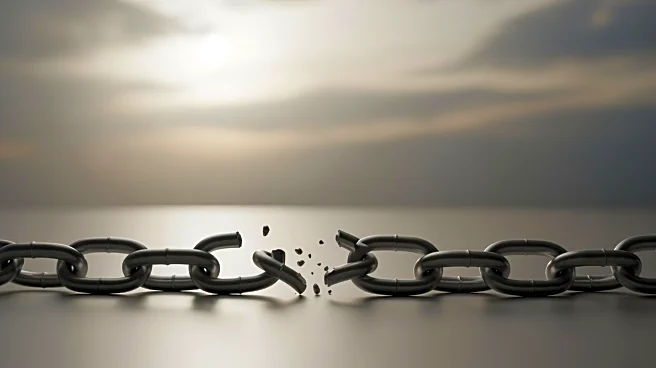What's Happening?
Hamas has handed over a coffin containing the remains of a deceased hostage to the Red Cross, which has been transferred to Israeli forces for identification. This action is part of the first phase of a US-brokered
ceasefire deal between Hamas and Israel, initiated nearly a month ago. Under the agreement, Hamas committed to returning all hostages, both living and deceased, within 72 hours. The hostages include 20 living and 28 dead individuals, both Israeli and foreign nationals. The Israeli military has accused Hamas of delaying the recovery of the bodies, while Hamas claims difficulties in locating them under rubble. The latest transfer leaves six hostages still in Gaza, including Israelis and foreign nationals.
Why It's Important?
The return of hostages' remains is a significant step in the ongoing ceasefire negotiations between Hamas and Israel, highlighting the complex humanitarian and diplomatic challenges involved. The exchange of hostages and prisoners is crucial for both parties, impacting regional stability and international relations. For Israel, recovering the remains of its citizens is a matter of national importance, while Hamas faces pressure to comply with international agreements. The situation underscores the delicate balance of power and the humanitarian implications of the conflict, affecting families and communities on both sides.
What's Next?
The identification of the remains will be conducted at the National Centre of Foreign Medicine in Tel Aviv. As the ceasefire agreement progresses, further exchanges of hostages and prisoners are expected, potentially influencing future diplomatic negotiations. The international community, including the United States, continues to monitor the situation closely, with potential implications for future peace talks and regional security. The ongoing recovery efforts may lead to additional humanitarian aid and support initiatives in Gaza.
Beyond the Headlines
The hostage exchange process raises ethical and legal questions about the treatment of prisoners and the responsibilities of conflicting parties under international law. The situation in Gaza remains precarious, with concerns about the long-term impact of ceasefires and the potential rebuilding of militant groups. The humanitarian crisis in the region continues to draw attention from global organizations, emphasizing the need for sustainable solutions and peace-building efforts.










